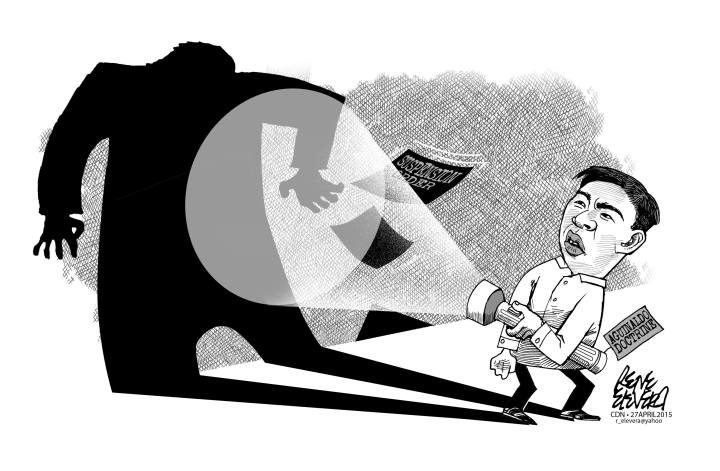
It’s high time that Congress and the Supreme Court revisit the so-called Aguinaldo doctrine in light of Makati City Mayor Junjun Binay’s escape act from the suspension imposed on him by the Ombudsman.
The Aguinaldo doctrine was used by Binay’s camp to justify their petition for a temporary restraining order from the Court of Appeals against the Ombudsman suspension order.
The Aguinaldo doctrine which originated from a 1959 Supreme Court decision on the Aguinaldo vs Santos case supposedly exempts reelected public officials from being penalized for administrative cases on the grounds that his/her reelection meant that he or she was forgiven and given a vote of confidence by the voting public.
The Aguinaldo doctrine saved Provincial Board (PB) Member Thadeo Ouano from being penalized for administrative offenses in relation to the 2007 lamppost case he was implicated in.
That same doctrine also spared former governor and now Rep. Gwendolyn Garcia of Cebu’s 3rd district from penalties on grave misconduct in connection to the Balili property case that is now being tried in the Sandiganbayan.
Both officials have been elected to higher office, with Ouano being a former Mandaue City mayor and Garcia, a three-term governor of Cebu. It is clear, however, that the two officials still have to deal with criminal charges filed against them for these cases.
But in Mayor Binay’s case, his lawyers argued that the Aguinaldo doctrine exempts him from being suspended even if it is preventive in nature so he won’t be able to influence and muck the investigation being done by the Ombudsman on the corruption charges leveled at him for the multi-billion peso Makati City building project.
The argument posed by a Binay lawyer, UP law professor Sandra Marie Olasco-Coronel, so incensed Chief Justice Maria Lourdes Sereno that she gave her and the mayor’s other lawyers a “dressing-down,” the military equivalent of a public censure or scolding.
“This is the kind of legal regime you want us to propagate? We believe that this is wrong and you are telling us to continue along that doctrine? You will insist on a rule of procedure that will wreak havoc on our constitutional framework?” Sereno told Coronel, her former law student.
But even without Sereno’s scathing denunciation of what she called as an “unfortunate doctrine based on bad case law,” the numbers alone tell the whole story.
The use of more than P300-billion worth of public funds by local officials in two years and how this would impact on the citizenry if said officials are exonerated on charges of misuse of these funds through the Aguinaldo doctrine cannot be quantified, as Sereno argued.
Again, both the Supreme Court and Congress should revisit and amend this doctrine to prevent elected officials from abusing it as a legal loophole to escape suspension and punishment for their acts of corruption.